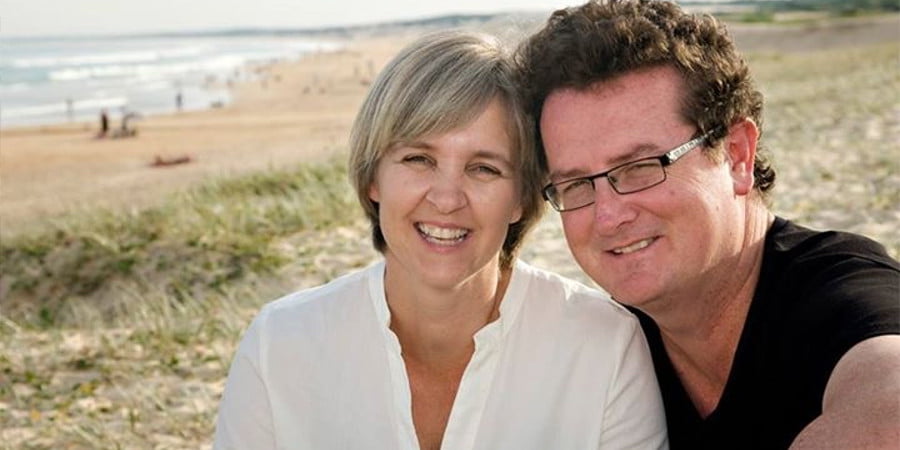“Family values” have become synonymous with a Conservative Christian agenda. The family is boldly proclaimed the God-ordained and fundamental building block of society, which, given such a grand status, must be protected at all costs.
The only problem with this is that Jesus seems to have considered the family highly problematic. Not only was he unmarried and childless, but he claimed that he came to divide families; called people to leave their families to follow him; said we should call no human “father” but look to God alone as father; and when his mother and brothers, concerned about his mental health, come to take him home declared that they are not his family. Rather those who do God’s will are his brothers and sisters.
[quote]Do not think that I have come to bring peace to the earth; I have not come to bring peace, but a sword. For I have come to set a man against his father, and a daughter against her mother, and a daughter-in-law against her mother-in-law; and one’s foes will be members of one’s own household.Matthew 10:34-36[/quote]
[quote]Now large crowds were traveling with him; and he turned and said to them, “Whoever comes to me and does not hate father and mother, wife and children, brothers and sisters, yes, and even life itself, cannot be my disciple. Luke 14:25-26[/quote]
[quote]But you are not to be called rabbi, for you have one teacher, and you are all students. And call no one your father on earth, for you have one Father—the one in heaven. Nor are you to be called instructors, for you have one instructor, the Messiah. The greatest among you will be your servant. All who exalt themselves will be humbled, and all who humble themselves will be exalted.[/quote]
[quote]Then his mother and his brothers came; and standing outside, they sent to him and called him. A crowd was sitting around him; and they said to him, “Your mother and your brothers and sisters are outside, asking for you.” And he replied, “Who are my mother and my brothers?” And looking at those who sat around him, he said, “Here are my mother and my brothers! Whoever does the will of God is my brother and sister and mother.”
Mark 3:31-35[/quote]
Sure doesn’t sound like Jesus thought the family was the God ordained foundation of society or that it needs to be protected!
Before we all start busting up our families a little context will help. In the first century Mediterranean loyalty to the family trumped almost every other claim on people’s lives and every public interaction was about increasing the honour of the family. This meant that rather than devoting its resources to building a community where the poor were assisted, the marginalised welcomed and the vulnerable protected, it was deemed better to use those resources to serve the interests of the family. Indeed lower status people were ignored as they had nothing to offer the household.
We see this in Luke 14, where guests at a dinner party jockey for seats indicating high status. Jesus challenges their preoccupation with status and the focus of their lives
[quote]He said also to the one who had invited him, “When you give a luncheon or a dinner, do not invite your friends or your brothers or your relatives or rich neighbors, in case they may invite you in return, and you would be repaid. But when you give a banquet, invite the poor, the crippled, the lame, and the blind. And you will be blessed, because they cannot repay you, for you will be repaid at the resurrection of the righteous. [/quote]
Families all too often were what prevented this type of community being created.
Compounding these difficulties was the patriarchal nature of the family. The identity of each household member was bound up with the family and each was expected to show total obedience to the patriarch, the oldest male. Women in addition were expected to confine themselves to the domestic sphere and subordinate themselves to their husband. The hierarchical nature of the family meant two competing centres of authority and identity: the patriarch and God. All too frequently the obligations owed to family stood in tension with the obligations God’s kingdom imposes on us.
This is evident in this particular episode
[quote]As they were going along the road, someone said to him, “I will follow you wherever you go.” And Jesus said to him, “Foxes have holes, and birds of the air have nests; but the Son of Man has nowhere to lay his head.” To another he said, “Follow me.” But he said, “Lord, first let me go and bury my father.” But Jesus said to him, “Let the dead bury their own dead; but as for you, go and proclaim the kingdom of God.” Another said, “I will follow you, Lord; but let me first say farewell to those at my home.” Jesus said to him, “No one who puts a hand to the plow and looks back is fit for the kingdom of God.”
Luke 9:57-62[/quote]
Jesus’ responses seem harsh. Why would he deny a person attending their father’s funeral or saying goodbye to his family? Kenneth Bailey has shown that there is much more to their requests than this. The phrase “let me go and bury my father” did not indicate the man’s father had just died, but reflected the notion that a son should stay with his parents until they died, contributing labour to the household and providing income support in their old age. The request then is to follow Jesus in the distant future once the man’s obligations to family have been fulfilled. Similarly, when the third would-be follower requests permission to say good-bye to his family, the cultural context demanded that to say goodbye, or take leave of, one’s family, a person required permission of the household head. In his replies Jesus scandalously calls his would-be followers to defy the expectations of the patriarchal household. The call to follow him took precedence over family obligations.
This was particularly true for women. Luke 8 reveals Jesus had a number of women in his itinerant disciple group. By following Jesus they move out of the domestic space that patriarchy assigned them into the public sphere thought to belong to men. Their behaviour would have been perceived as scandalous and shameful, but they were committed to following Jesus.
Far from being a supporter of family values Jesus saw the patriarchal family of his day as one of the greatest impediments to the creation of the sort of community God desires and to a fully engaged discipleship. To embrace the way of the kingdom of God meant a lifestyle that clashed with the expectations of the patriarchal family.
This didn’t mean he wanted to end the family. He affirmed marriage (Matthew 19) and saw important responsibilities existed within families (Matthew 15:1-9).
Families are a network where we should discover what it means to be loved unconditionally, learn to set moral boundaries, gain wisdom and understanding, and more. But like all good things, families can become an idol. I think this is true in Australia. For most Aussies the good life is one in which we enjoy as much as we can in the company of family and friends, and we devote almost all our time, energy and resources to this. Jesus vision of the good life is so much more than this. It is to join with God in the remaking of our communities and our world. Our families should be vehicles for this not an alternative to it.
This is why I think we should be suspicious of the “family values” agenda. All too often it is code for the idolising of the family. What I want is for Jesus’ values to so permeate my family that we become a mini community of faith, grace & love, open to one another and to our world, participants in the divine revolution of love, justice and equity.







Your comments about family responsibilities trumping all others are very true of Hinduism. A person with power is expected to use it on behalf of his/her family – it’s not seen as corruption or nepotism. If your family has paid for your education, you are expected to use it to their advantage, not for the public good. Family and caste are closely associated of course, so putting family first reinforces the iniquities of that particular system of oppression. The eldest son is required to light his parents’ funeral pyres – I have had a Nepali friend say “I will become a Christian after my father is dead,” meaning “I need to light his pyre, and I can’t do that if I’m a Christian”. Living in this culture certainly brings so much of the Bible to life!
Thanks Lyn,
Amazing parallels to situation in the text